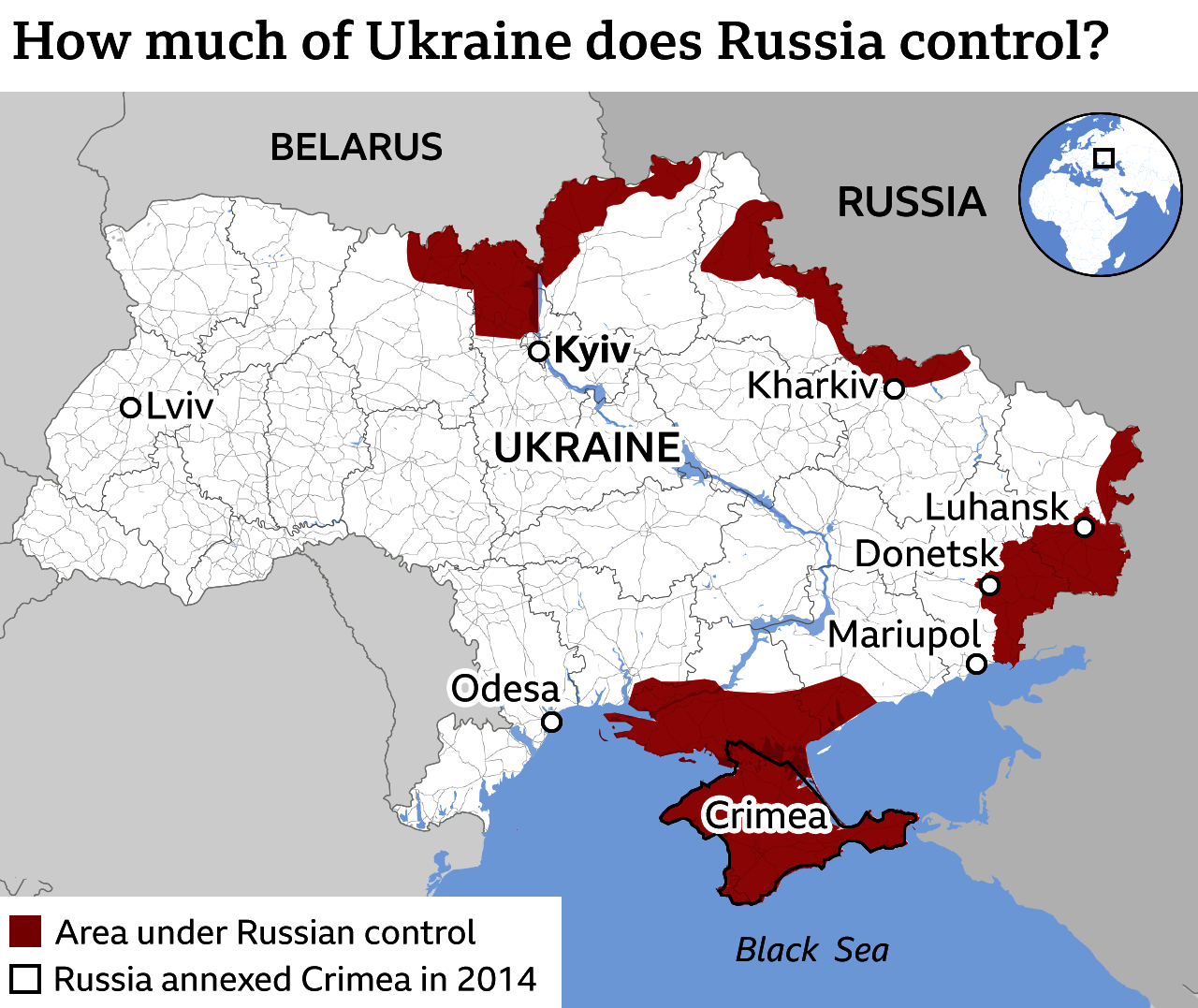International Relations
UN Resolution Condemning Russian Aggression
- 28 Feb 2022
- 7 min read
For Prelims: Location of Ukraine and Neighbourhood, United Nations Security Council, Russia, Ukraine, Veto Power, LAC, QUAD.
For Mains: Important International Institutions, Global Groupings, International Treaties & Agreements, India and its Neighbourhood, Effect of Policies & Politics of Countries on India's Interests, India’s Stand on the Resolution, Reasons for India’s Stand and Way Forward.
Why in News?
Recently, the United Nation Security Council voted on the draft resolution by the US and Albania that sought to condemn Russian aggression and called for the immediate cessation of violence and withdrawal of Russian military from Ukraine.
What was the Resolution About?
- The Council’s resolution reaffirmed its commitment to the sovereignty, independence, unity and territorial integrity of Ukraine within its internationally recognised borders.
- The resolution “deplores in the strongest terms Russia’s aggression against Ukraine” and decides that Russia “shall immediately cease its use of force against Ukraine and shall refrain from any further unlawful threat or use of force against any UN member state”.
- The original version was too strong, as it invoked UN Chapter VII, which authorises the use of force against Russian troops in Ukraine.
- It also asked Russia to “immediately and unconditionally reverse the decision related to the status of certain areas of Donetsk and Luhansk regions of Ukraine”.
- The resolution did not pass since the permanent member and President of the Security Council for the month of February Russia, used its veto.
- The resolution received 11 votes in favour and three abstentions. China and India both abstained.
What is India’s Stand on the Current Crisis?
- India is deeply disturbed by the recent turn of developments in Ukraine. India urged that all efforts shall be made for the immediate cessation of violence and hostilities.
- Dialogue is the only answer to settling differences and disputes, however daunting that may appear at this moment. It is a matter of regret that the path of diplomacy was given up.
- With this India has managed to hold its balancing act again, despite the considerable pressures from the West to vote against Russia, as well as pressures from Russia to support it.
- Earlier in January 2022, India abstained from a vote on whether to hold a discussion on the Ukraine situation, and also indicated support for Russia’s legitimate security interests.
- India has been in touch with all sides, urging parties concerned to return to the negotiating table.
What is India’s Dilemma?
- India’s strategic ambivalence at this big turning point in world geopolitics is born out of its friendships and strategic partnerships on both sides.
- Russia is India’s biggest and time tested supplier of defence weapons. Despite its growing friendship with China, Russia has boosted India’s defence capabilities with the S-400 air defence system.
- India’s Defence Minister visited Russia at the height of India’s crisis with the Chinese Army at the Line of Actual Control (LAC) in June 2020. And Russia has stood behind India at the UNSC on all issues.
- At the same time, India has a deep partnership with the United States, which includes defence pacts, trade and investment, technology, and not least, a huge connection through the Indian diaspora and people to people contacts.
- With thousands of students leaving Indian shores every year to study in American universities.
- The same with Europe. Additionally, France as one of the P-5 (Permanent Five) is a vital friend of India in the UN Security Council. India needs all these friends as it deals with China’s moves at the LAC.
What is the Need of the Hour for India?
- Dealing first-hand with the consequences of Chinese expansionism and adventurism on its own borders, and a South Asian region suddenly vacated by America's military presence in Afghanistan.
- India needs both the US and Russia to fend off a Chinese strategic and geo-economic threat in Asia.
- If the India-Russia partnership is critical on land in Asia, the QUAD - an alliance between America, Japan, Australia and India - is imperative when it comes to countering Chinese maritime expansionism in the Indian Ocean region.
- The imperative to counter China remains a cornerstone of Indian foreign policy, everything-including Delhi's position on Russian action in Ukraine- flows from that.
- Within India’s foreign policy establishment, there is ongoing debate on what India might gain or lose by its neutrality and the consequences of siding with the West.
- There is also the thinking that the West cannot afford to cut away from India at this point, as it needs India’s markets, and India’s heft as a democracy as it seeks partners to contain China.
- But there is an inbuilt tension in this realist position that speaks about rules violations in one part of the world but does not call it out in another.
- Therefore, India’s position may have to be calibrated constantly as the situation evolves especially if confronted by growing casualties in Ukraine.





